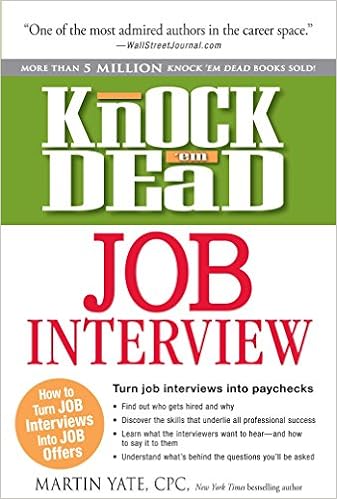- Key Takeaways
- Most Common Interview Mistakes
- Talking About Unrelated Roles
- Disrespecting Your Past Employer
- Not Asking Questions
- Dead Air
- Attending Unprepared
- Mastering Virtual Interviews
- Using Storytelling to Highlight Impact
- Making the Most of Your Soft
Skills - Preparing for Behavioral Questions
- Bringing
Your Resume to Life - Next Steps
- Final Words
We may earn a commission if you click on a product link and make a purchase at no additional cost to you. For more information, please see our disclosure policy.
Last Updated on June 28, 2025
Key Takeaways
- Stay Focused on Relevant Experience: Avoid discussing unrelated roles unless they demonstrate transferable
skills that align with the position you’re applying for. - Maintain Professionalism at All Times: Speaking negatively about past employers can harm your chances; instead, highlight your growth and learning.
- Ask Insightful Questions: Use your chance to ask thoughtful questions to show interest, engagement, and determine if the company is a good fit for you.
- Practice Clear, Confident Communication: Avoid dead air and long pauses—engage naturally and prepare ahead for tough or unexpected questions.
- Do Your Homework Beforehand: Research the company, its competitors, and the interviewer to personalize your answers and demonstrate your genuine interest in the role.
Attending a
Most Common Interview Mistakes
- Arriving late or too early: Your timing reflects your professionalism.
- Dressing inappropriately: Match the company’s dress code.
- Failing to research: Know the company and role in detail.
- Unprepared answers: Practice common
interview questions . - No thoughtful questions: Show curiosity about the position.
- Criticizing employers: Stay respectful and maintain a positive tone.
- Interrupting: Let the interviewer guide the flow.
- Rambling: Keep answers concise and relevant.
- No thank-you note: Always follow up with an
email . - Lack of enthusiasm: Express genuine interest in the role.
The game isn't over when you leave the interview. You're still in a conversation about this job, and you can win it or lose it with what you do after the interview. In this report, I show you the very best follow-up strategies that go way beyond a generic thank you note.
Talking About Unrelated Roles
Interviewers expect relevant information, not a complete job history. Speak only about roles that relate directly to the position or highlight transferable
Disrespecting Your Past Employer
Speaking negatively about previous employers can hurt your credibility. Instead, highlight lessons learned, personal development, or positive outcomes. Show how past challenges prepared you for this opportunity. Employers want someone who can handle setbacks with maturity, not someone who brings baggage into a new role. Stay professional and forward-thinking in all your responses.
Learn how to make a lasting first impression by understanding how others see you and mastering the seven fundamentals that shape every new encounter.
Not Asking Questions
Failing to ask questions can signal a lack of interest. Interviews are a two-way evaluation, and asking thoughtful questions shows preparation and genuine curiosity. Prepare a few questions in advance, such as:
- What growth opportunities exist in this role?
- What makes this company unique in the industry?
- How do teams collaborate here?
- What does success look like in this position?
Bringing your questions, printed or noted on paper, can further demonstrate professionalism and readiness.
Master tough interview questions, avoid common traps, and ask the right questions to land the job that fits—confidently and strategically.
Dead Air
Silence during an interview can create tension and undermine confidence. If you don’t know an answer, be honest—acknowledge your learning curve and offer a related strength or a plan to develop that skill. Interviews are not pass/fail exams. They are conversations, and showing self-awareness can often outweigh perfect answers.
Attending Unprepared
Enter your interview with strong research backing you. Understand the company, the role, and the industry in which it operates. Be prepared to discuss competitors, growth trends, or the company’s values. Look into the
If you want to know how to interview better to get the job, then get the "How To Prepare For An Interview" guide. You will discover the unconventional secrets of how to stand out and land the job that you want.
Mastering Virtual Interviews
As
Using Storytelling to Highlight Impact
In interviews, candidates often list achievements without context. Transforming experiences into compelling stories makes you more memorable. The key is to communicate the challenge, action, and result in a concise and engaging way. This approach not only showcases your
This book is all about how best to nail the online virtual interview for jobs. On perusing the book, you will be knowing how to prepare for online interview and how to deliver, for in the end, employer would like to hire you.
Making the Most of Your Soft Skills
While technical qualifications matter, soft
- Communication: Conveying ideas clearly and listening actively during conversations.
- Collaboration: Working well within teams and resolving conflicts productively.
- Adaptability: Adjusting quickly to changes in work processes or environments.
- Problem-Solving: Approaching challenges with logic and creativity.
Preparing for Behavioral Questions
Behavioral
37 ways to have unstoppable confidence in your job interview. Get the Job You Deserve!
Bringing Your Resume to Life
Your resume outlines your experience, but interviews give you a chance to expand on it with added context and enthusiasm. Use this opportunity to connect your past roles to the responsibilities in the job you’re applying for. Employers want to see how your background aligns with their needs and expectations. Focus on areas where you made measurable contributions to business outcomes, such as:
- Revenue Growth: Initiatives that increased profits or improved client retention.
- Efficiency Gains: Streamlining processes to reduce waste or save time.
- Leadership Impact: Mentoring or guiding teams to successful outcomes.
- Innovation: Proposing ideas that led to product or service improvements.
This book offers practical advice to help job seekers avoid common interview mistakes and present themselves more professionally to improve their chances of getting hired.
Next Steps
- Review Your Interview Approach: Assess your recent interviews and identify areas where you can improve responses, body language, or preparation techniques.
- Create a Question List: Draft at least five thoughtful questions to ask during interviews that demonstrate genuine interest and research about the company.
- Rehearse with a Friend: Practice answering common
interview questions out loud with a friend or mentor to refine your delivery and confidence. - Update
Your Resume Strategically: Tailoryour resume to highlightskills and accomplishments most relevant to the specific role you’re applying for. - Research Company Cultures: Look into company values, recent news, and employee reviews to better understand how to position yourself during interviews.
Final Words
A successful interview isn’t just about answering questions correctly—it’s about making a lasting impression through preparation, professionalism, and presence. By aligning your message with the company’s needs and showcasing your unique strengths, you significantly increase your chances of moving forward in the
Using his twenty-five years of experience, New York Times bestselling author Martin Yate has established a set of rules for job interviews that is sure to get you noticed.
Related posts:
Mark Fiebert is a former finance executive who hired and managed dozens of professionals during his 30-plus-year career. He now shares expert job search, resume, and career advice on CareerAlley.com.















